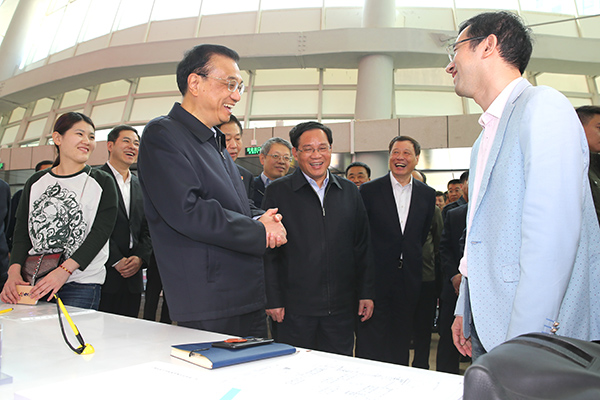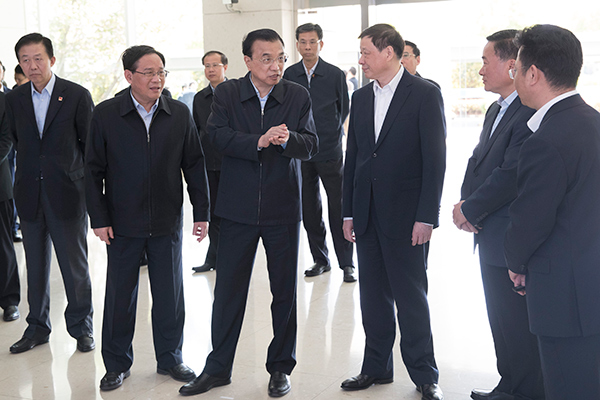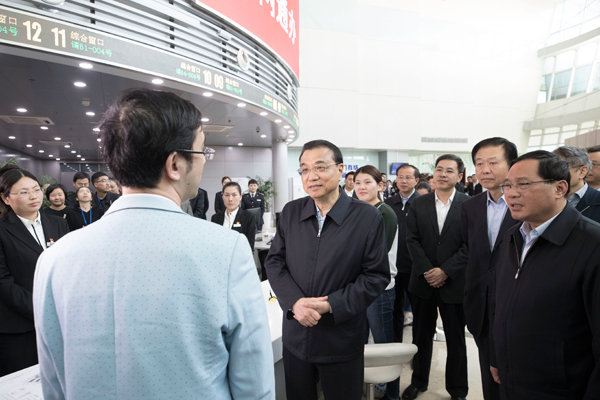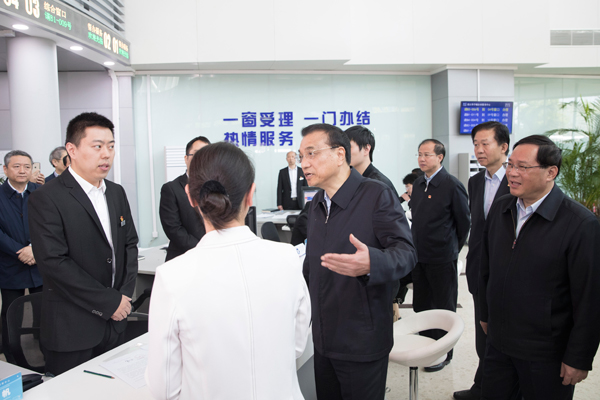

Premier Li Keqiang paid a visit to the China (Shanghai) Pilot Free Trade Zone (FTZ) on April 10, calling for further improvement in the business environment.
It was his first visit to the Shanghai FTZ since his re-election as Premier.
He visited Shanghai for the first time in 2013 after taking office, which directly accelerated the establishment of the Shanghai FTZ. Afterwards, the Premier visited the FTZ four times, and has been demonstrating his increasingly higher expectations for the zone’s reform and opening-up.
During this visit, Premier Li inspected an enterprise service center in the FTZ in Zhangjiang district.
He was briefed that the number of newly-established enterprises is 1.5 times than before. Covering no more than one-fiftieth of the city’s area, the FTZ has created 40 percent trade volume of to the city, and about 100 innovative results have been promoted across the country.
After hearing this, Premier Li said that Shanghai is exemplary as one of the sample cities set by the World Bank for evaluation of the Chinese domestic business environment.
The city should exert more effort to improve the business environment, and reduce institutional costs to upgrade the free trade zone, Premier Li said.


One of the biggest items on the Premier’s schedule for this trip is to inspect the progress of streamlining administrative services, such as setting up an e-platform for accessing government services, which was brought up at a news conference in late March at the end of the annual meeting of the National People’s Congress.
In the past, nearly 129 approval items from 18 departments needed to be processed at 99 service windows in the Shanghai FTZ, but now the local government is working toward processing all the approval items at a single window.
After seeing that, the Premier said that the “one e-platform for all” is a significant measure in transforming governments’ functions. It saves people’s time by data sharing.
